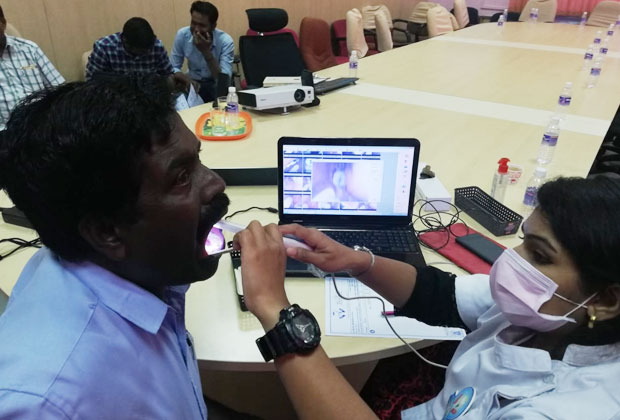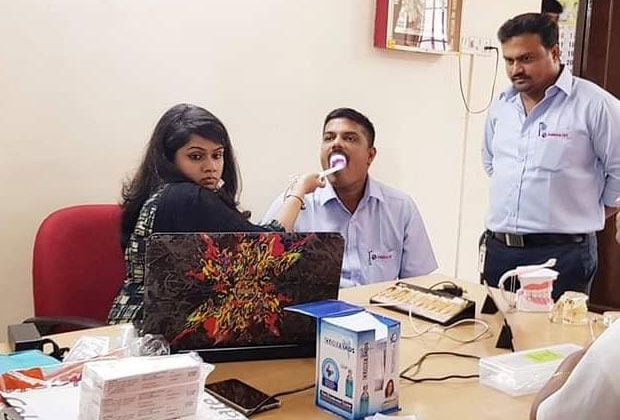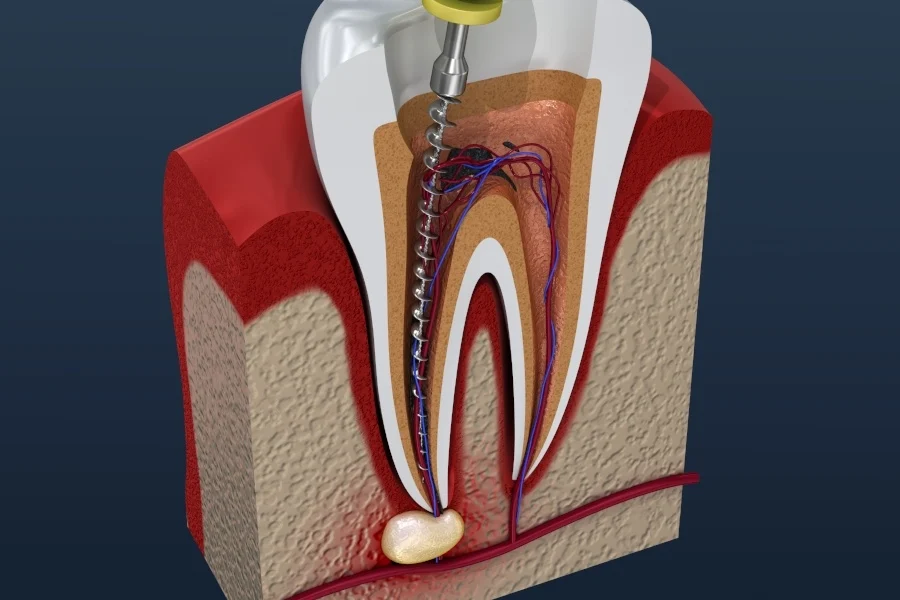
Root canal treatment:
Root canal treatment is a straightforward procedure in which infected tissue is isolated from the tooth's root. It is then filled with a suitable material and covered with a cap or crown. It's done under local Anesthesia so that you won't feel any pain. This treatment aims to restore and salvage a decayed or infected tooth. Depending on the circumstances, they may be completed in one visit or require multiple appointments.
Traditional root canal therapy:
Traditional root canal treatment involves removing the infected tissue from the tooth, cleaning it with an antiseptic such as sodium hypochlorite or chlorhexidine, and then replacing it with a suitable filling. The tooth is filled and sealed with a special cement. The process begins by creating an opening in the tooth. Once inserted, the solution is cleaned using hand tools. Once the tooth is filled, it can be returned with a cap or crown.
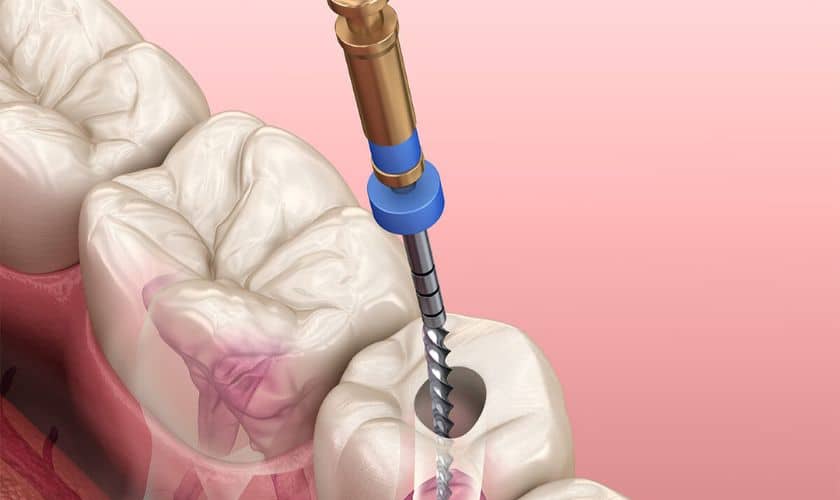
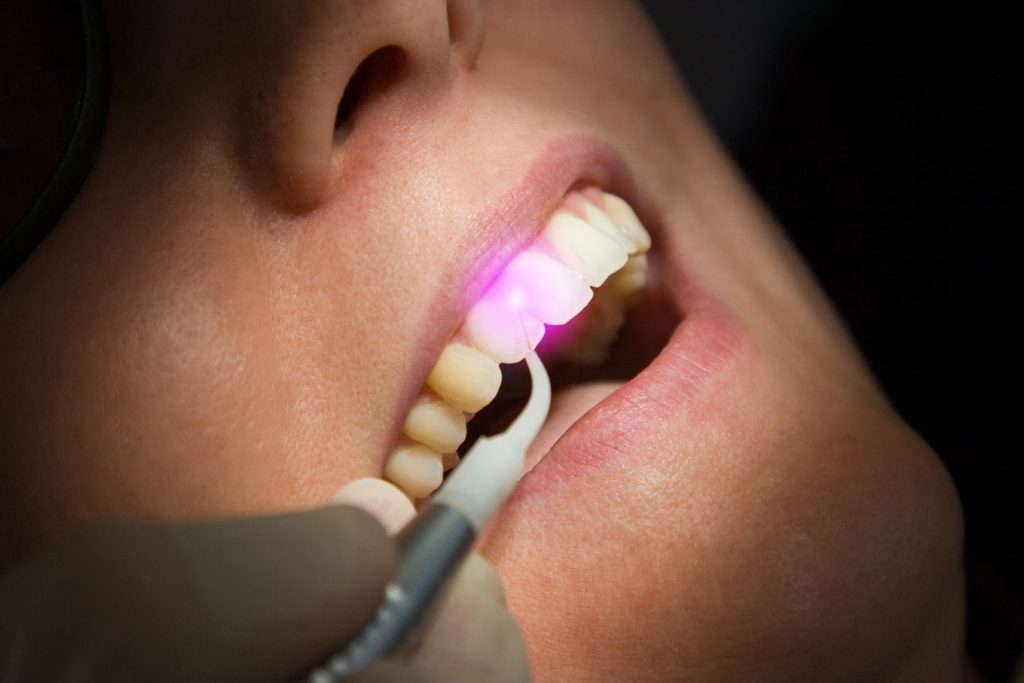
Drawbacks of Traditional Root Canal Therapy:
- More invasive
- Takes more time
- It may be more painful than laser-assisted root canal therapy
- High risk of reinfection
- Generally, it is less successful than laser-assisted root canal treatment
Why choose laser Root Canal Therapy?
Dentists relied on drills and hand tools for centuries to remove infected tooth decay. Laser dentistry has recently changed the way we approach dental treatments.
Benefits of Laser Dentistry:
- Comfortable experience: Laser dentistry is gentle, resulting in less pain for patients.
- Reduced Post-operative Issues: This procedure reduces complications such as inflammation, pain, and bleeding after surgery.
- Faster procedure: Laser treatment is generally quicker than traditional treatment methods.
- Less intense Anesthesia is needed: Patients generally need less local anesthesia during treatment.
- Effective disinfection: The laser thoroughly cleans the tissue, increasing the chances of a positive outcome.
- Increased precision: The precision of the laser reduces the number of missing teeth and helps to keep the tooth in shape.
- Initial treatment: Less aggressive treatment for a speedy recovery.
- Reduced risk of infection: Laser treatment reduces the chances of reinfection and contamination.
How Does It Work?
Laser dentistry combines traditional dental techniques with advanced technology to effectively remove plaque and kill bacteria that can cause recurrence of the infection
- Access to the pulp: The inner pulp chamber is opened with a laser drill.
- Sterilization: The soft tissue laser sterilizes hard-to-reach areas and tooth structures that may be missed by routine treatment.
- Reduced friction: Using the laser creates less friction, significantly reducing pain and discomfort during surgery.
Are lasers safe?
Many people are concerned about the safety of laser dental procedures for fear of a dentist accidentally damaging their teeth. However, laser treatments are performed by experienced dentists who are well-trained in these techniques. While using a laser requires different skills than operating a drill, dentists use both tools with precision and care.
Cost-effectiveness of laser-assisted root canal therapy
Generally, the cost of laser-assisted root canal therapy ranges from INR 5,000 to INR 15,000 for one tooth. This value can vary depending on individual factors such as the area of decay, the stage of infection, and the number of canals in the tooth.
Our expertise is in laser root canal treatment
We specialize in laser root canal treatment, which is less painful and often more effective than traditional techniques. Most treatments can be completed in just one visit, taking between 45 and 90 minutes. You can easily schedule a dental appointment and treatment with us conveniently and comfortably.
FAQ: Laser Assisted Root Canal Therapy
Laser Assisted Root Canal Therapy is a modern dental treatment that utilizes laser technology to enhance the effectiveness and efficiency of traditional root canal procedures. The laser aids in cleaning, disinfecting, and shaping the root canals, often leading to improved outcomes.
The laser provides precise energy that helps to eliminate bacteria and infected tissue in the root canal system. It can also reduce the need for manual instrumentation, minimize pain, and promote faster healing.
Yes, Laser Assisted Root Canal Therapy is considered safe when performed by a trained dental professional. The lasers used in this procedure are designed to target only the infected areas, minimizing damage to surrounding tissues.
The benefits include reduced treatment time, less discomfort during and after the procedure, increased effectiveness in disinfecting the canals, and a higher success rate in treating infections.
The duration of Laser Assisted Root Canal Therapy can vary depending on the complexity of the case, but it generally takes about the same time as a traditional root canal procedure, often ranging from 60 to 90 minutes.
Most patients report less pain during Laser Assisted Root Canal Therapy compared to traditional methods. Local anesthesia is typically administered to ensure comfort throughout the procedure.
Recovery times can vary, but many patients experience minimal discomfort and can return to normal activities shortly after the procedure. Following the dentist's post-treatment care instructions will help ensure a smooth recovery.
Most patients requiring a root canal are candidates for this advanced treatment. Your dentist will evaluate your specific situation to determine the best approach for your dental needs.
Common signs that may indicate the need for a root canal include persistent tooth pain, sensitivity to hot or cold, discoloration of the tooth, swelling in the gums, or a recurring pimple on the gums. A dental examination and X-rays can provide further insights.
The cost of Laser Assisted Root Canal Therapy may be slightly higher than traditional root canal treatment due to the advanced technology and equipment used. However, many patients find the benefits in comfort and recovery time justify the investment. It’s best to consult with your dental office for specific pricing and insurance coverage options.




